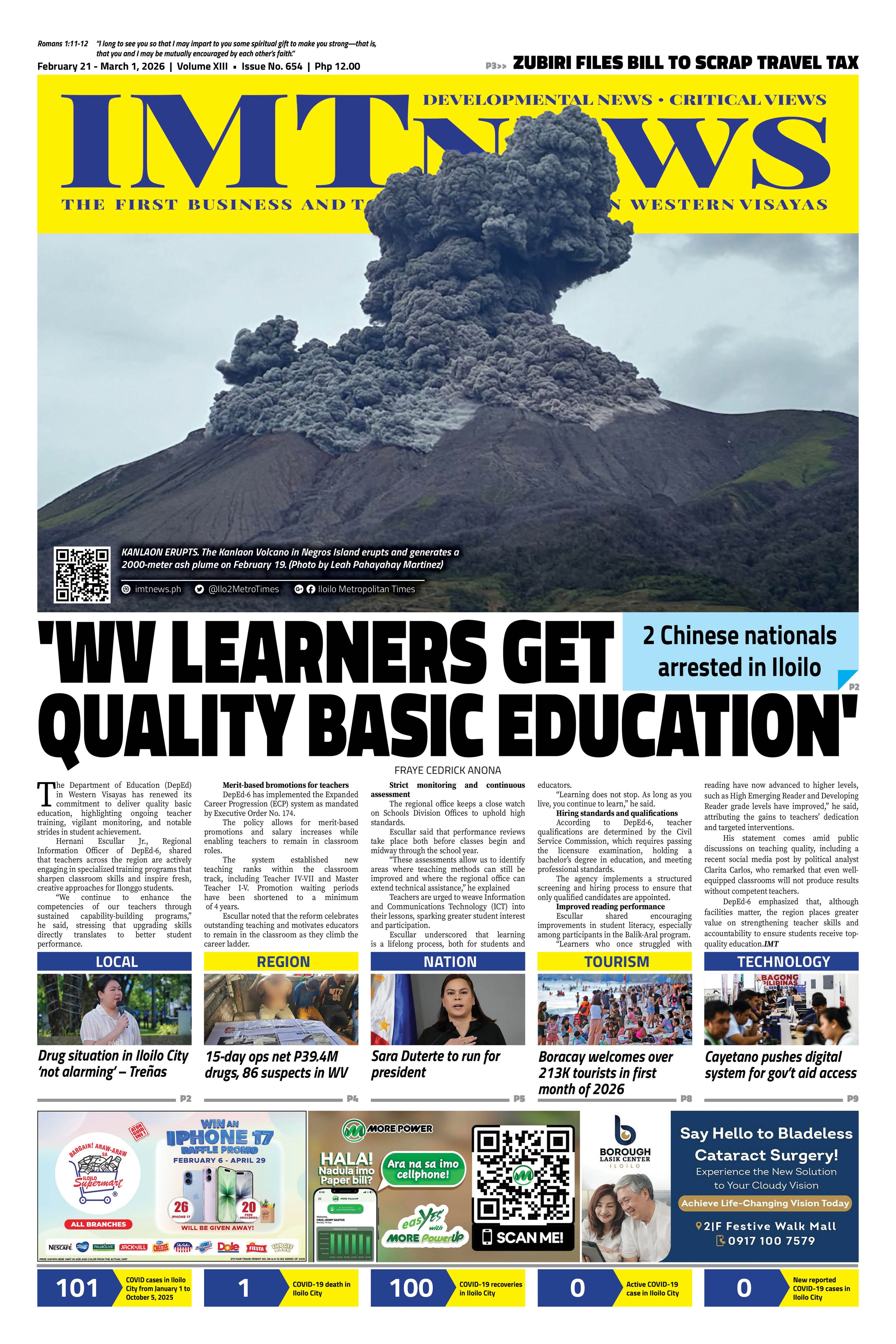Let us clear the haze around who truly authored the landmark Free Higher Education Law. A flood of near-identical online posts—many linked to Duterte’s daughter Kitty—have recently claimed that former President Rodrigo Duterte deserves more credit than Senator Bam Aquino. These posts do more than boost Duterte’s image. They distort history, downplay Aquino’s role, and erode public understanding of how laws are made. What should be a shared national win is now entangled in noise, memes, and misinformation.
This is not about political loyalty. It is about truth. In legislation, the credit goes not to the one who signs last, but to those who write, fight, and push it through every stage. Bam Aquino did that. As principal sponsor and co-author of Republic Act No. 10931, he chaired hearings, engaged with stakeholders, defended the bill on the Senate floor, and worked to fund it. The Senate archives and CHED records show this clearly. Duterte’s signature came only at the final step—important, but not foundational.
Giving full credit to Duterte is like thanking the school registrar for a student’s honors just because she printed the certificate, or praising the hospital director for a patient’s recovery because he signed the discharge form. The real work was done elsewhere—quietly, rigorously, and away from the cameras. Legislation happens in long hours, in difficult debates. Duterte may have signed RA 10931, but Aquino and his peers laid its bones.
To be fair, Duterte did sign the law—but not in isolation. His own economic team, especially Budget Secretary Ben Diokno, warned against it, calling it unsustainable. But pressure from students, families, and Congress was mounting. Vetoing the bill would have been a political blunder. Signing it was more of a necessary response to public demand than a personal crusade. Like a thesis adviser who signs off after the real work is done.
Aquino, on the other hand, took on the tough part. As chair of the Senate Committee on Education, Arts, and Culture, he collaborated with Ralph Recto, Sonny Angara, Sherwin Gatchalian, Leila de Lima, Kiko Pangilinan, and others to consolidate proposals. Nearly every legislator in both chambers backed it by the end. And even after the law passed, Aquino stayed involved to ensure it reached students nationwide.
This was not his only meaningful law. Aquino also pushed the Go Negosyo Law, the Youth Entrepreneurship Act, and the Philippine Competition Act—bills aimed at empowering the everyday Filipino. He was never one for fanfare. His impact came from substance, not slogans.
Some have compared Aquino’s RA 10931 to Bong Go’s association with Malasakit Centers. The distinction is crucial. Medical aid through government agencies existed long before Go’s initiative. What he did was streamline access. That deserves credit. But claiming he invented public medical aid is as misleading as saying Aquino invented scholarships. Both worked to institutionalize programs already grounded in public service. And both relied on taxpayer money—not personal charity.
No law happens in a vacuum. RA 10931 was the product of coordination, cooperation, and careful crafting. Aquino drove it in the Senate; the House pushed from its end. Duterte’s role came only after both chambers had approved the measure. And under Philippine law, the bill could have lapsed into law with or without his signature after 30 days.
If this were a group project, Duterte was the one who signed the final output. That matters—but not more than the student who wrote the paper, edited every page, and defended it in class. In this case, Bam Aquino was that student. Duterte signed off at the end.
Facts matter—especially in a time when digital manipulation spreads faster than truth. These posts hailing Duterte while mocking Aquino seem less about history and more about engineering a narrative. The use of AI-generated images and copy-paste slogans flattens complexity and distracts from what really counts: improving how laws like RA 10931 work in real life.
We owe it to students, educators, and the public to tell the truth. Credit must go to those who actually earned it. This is not partisanship. It is respect for process. When we let politics decide whose work gets remembered, we chip away at our institutions. Instead of arguing over applause, we should focus on making laws work better—filling gaps, correcting flaws, and ensuring no student gets left behind.
RA 10931 was not magic. It came from grit—long nights, hard questions, and a stubborn belief that college should not be a privilege for the few. It was made real by people who saw education as a right, and worked for it in rooms far from the spotlight. The law’s roots are in policy, not pageantry. And while Duterte helped close the loop, Aquino helped build it.
The truth is quiet. It is there in the records: Bam Aquino authored and carried the Free College Law. Rodrigo Duterte signed it. Both roles mattered—but one laid the foundation, the other added the seal. That is the story. Let us not let hashtags, recycled scripts, algorithm-fed noise, and revisionist memes write a different one.
Doc H fondly describes himself as a “student of and for life” who, like many others, aspires to a life-giving and why-driven world grounded in social justice and the pursuit of happiness. His views do not necessarily reflect those of the institutions he is employed or connected with.







